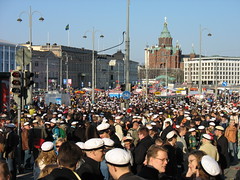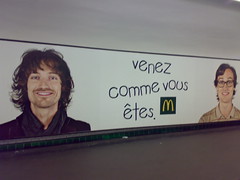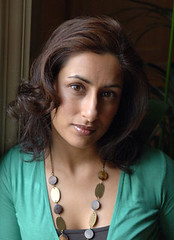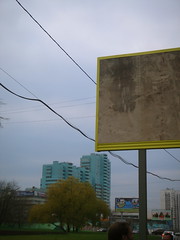Thursday, November 27, 2008
Tradition of Elite
This organization has been fundamental for our small nation in the North. It was the students of this very union who sang the national anthem for the first time when Finland was still under the Russian rule. It was also this very student union, which acted as the key stage in the cultural revolution of the late 1960s. 20 years ago HYY was one of the founders of Pakolaisapu, a legal counseling organization for refugees. This role taken by students is in no way unique for Finland – in the US students played a fundamental role in shaping the civil rights or anti-Viet Nam agenda.
It has been fours year since I attended these annual celebrations. This community has been crucial in shaping who I am now and how I carry myself to the future. It is not “just” some volunteering, it is a school of citizenship. I feel very strongly about its well being, at the same time recognizing that decisions are now made by people significantly younger than I am. And rightly so.
These parties provide us a peak into the mindset of their time. Selection of speakers and the songs being sung tell about the priorities and concerns.
This hope of acting as a beacon is of course an issue that the union needs to think of as part of its strategy in keeping students active in it: how much is the student union up to its time and promise of leadership? How does it keep itself fresh and alert? How is the student union showing the way of tomorrow for its nation? Which traditions are worth preserving and which are ones we have been doing for too long just out of a habit?
Relating to this challenge, I found myself thinking of the following yesterday evening: Singing is a great student tradition. But why students would sing in year 2008 mostly about boozing and even more troubling:”More land for Finland, more Finland on Earth, Let´s March to Carelia, Carelia!”
Wednesday, November 19, 2008
Echoes From The Diversity Chamber
It is no wonder that the European Union is busy with the subject. With all its languages and growing migration, Europe is going through a serious shakeup. A continent that built up the nation state is now struggling with it. Therefore the year 2008 has been announced to be the European Year of Intercultural Dialogue and a new slogan has been launched: united in diversity. It is difficult to find a politician who would not mention the magic words in an opening speech: intercultural dialogue. Having spent the last two days in a conference in Paris on the subject, this has also been empirically proven on local, national and EU level.
But there is a great risk in this rising interest. The more the phrase ‘intercultural dialogue’ is used without definitions or concrete proposals, the more it faces the risk of turning into a hollow phrase. When intercultural dialogue becomes the issue rather than a practical tool for mediation, the more it detaches from our daily lives. Intercultural dialogue is not something we experience, we experience interactions with other people and we deal with concrete differences of opinion. The last year has taught me that European politicians need serious training on storytelling and on touching also our emotional side next to the pragmatic one.
I cannot change someone’s values by banging them on the head with mine. If I express no sincere interest towards his or her positions and beliefs and do not recognize the difference, we just end up having a pretentious and shallow conversation. We need to focus less on compromise and more on comprehension. We need to dare to go on the level of goals and aspirations and stop with an obsession for instance on national/shared values. The core issue is what we do when we live together, not what we believe in. By being more explicit and detailed, we can also be tough on the ones that break the rules - regardless whether they are native or immigrant.
(This photo from the streets of Paris works well for this theme. Massive McDonalds rebranding campaign on all billboards in Paris saying: Come as you are.)
Friday, November 14, 2008
Ch-Ch-Change
There´s been a lot of talk about change during the last few weeks. We are seeing a new face of American leadership. As a friend of mine coined it perfectly yesterday:"It is not only Barack Obama. It is the view of seeing an African-American family walking on the stage with the American flag in the background."I could not agree with her more. I think a diverse set of leaders with diverse styles and aspirations opens possibilities for more people and is in the end better for us all.
On my flight to Helsinki last Wednesday I was reading the Newsweek special commemorative issue on Obama´s election. It made me shiver and moved me nearly to tears (no, it was not the KLM Pinot Grigio). On these moments I confess having jealousy towards the Americans: the boldness of top notch journalists to show emotion and excitement, to allow themselves to give a politician the chance to make that change.
I am engaging myself into big changes in my life. The first steps have been taken and I cannot tell you how good it feels. It means re-evaluating what you can, what you want and what makes you happy. Shaking up your personal dollhouse is bloody scary but it is something one ought to do every few years. And when you throw all the stuff on the table and prioritise them again with a fresh look, it leads to surprising result. More to follow.
Friday, November 07, 2008
This Is Who I Am
I was most impressed by the approach, which the presenter Saira Khan and many others had chosen. They defined themselves on stage before the audience had a chance to make their assumptions. They made the statement I would love to hear more often: this is who I am, I am not asking for any special treatment and I have no problem talking about my background - but allow me to do it on my terms. Saira Khan coined the issue well referring to her experience in The Apprentice TV show:"When the rules are the same, you get surprising results."
Personally and professionally the conference was a great inspiration for me. It gave me more confidence that we are doing things right in StrangerFestival: we allow the young video makers to choose what they talk about and what matters to them. We are all experts in our own lives and equality allows us to co-exist and share and feel part of something bigger. This does not mean shying away from differences, it means recognition of everyone´s right to define themselves. Diversity for us in StrangerFestival means that we strive for getting as different voices as possible from a diverse youth population, i.e. giving opportunities for more people and getting better content. In this manner we take a deliberate stand away from projects where minorities are invited to explain how different they are.
Way too often diversity is tackled on the level of an individual and not on the level of the system. Diversity needs to come in to the game in the recruitment phase and when negotiating the shared rules, not only in individual job interviews. As the speaker from IBM said in the Diversity Show:"If I would ever feel that I am promoted because of my cultural background and not my performance, I would leave. But the fact that I know the number of women and minorities in executive positions at IBM, means that someone is keeping score."
And as the last praise for yesterday, the great thing the Dutch public broadcasters had done was making a conference on diversity fun, visually incredible and good entertainment. I have often wondered why people who are able to do great programmes, are not able to translate their skills into making great events. Diversity Show built on competences from television in terms of length and formats of speeches, use of visuals and interaction amongst people. As EBU´s Head of Television Björn Erichsen put it yesterday: Diversity Show has set a new standard for European media conferences.
Tuesday, November 04, 2008
Just A Few Hours
"Our lives on this planet are too short, the work to be done is too great. But we can perhaps remember, that those who live with us are our brothers, that they share with us the same short moment of life that they seek as do we, nothing but the chance to live out their lives in purpose and in happiness, surely this bond of common fate, this bond of common roles can begin to teach us something, that we can begin to work a little harder, to become in our hearts brothers and countrymen once again."
- Senator, Presidential Candidate Robert F. Kennedy at the City Club of Cleveland
Cleveland, Ohio (5 April 1968)
Sunday, November 02, 2008
My Name Is Moscow
And this is only the people who choose for public transport. In the information pack from the British Council they instruct us to head to the airport four hours before departure. It seems absurd but already on the way into the city upon arrival it starts making sense. Two hours moving on snail speed for something like 20 kilometres.
During a presentation by a young architectural office we see fancy designs for gated communities and ski slopes on the rooftops of shopping centres. One of them looks a lot like Rem Koolhaas´ star architecture in China. The smooth PowerPoint presentation makes me think of the demand by lecturer Roy van Dalm: a future plan of a city needs to be authentic, it needs to link to the city´s DNA.
We cannot all become Bilbao or Amsterdam. It is not the right answer for the struggles of Moscow to copy an internationally famous architectural plan when the city is barely coping with its amount of traffic and the thousands of homeless people. Copying others results only into being a second-rate version. An answer to Moscow´s challenging is not starting from scratch, it is seeing how people can start imagining a new sense of being together building on the history of the city. In other words, how Moscow can become a better Moscow. In order to build a community, you need to give citizens the possibility to continue and enhance their individual experience of Moscow.
I would not trust governments to come up with this new imagination. I have seen two many cities proclaiming themselves as the creative capital. But I do feel that you need artistic and activist interventions to stimulate seeing common things in a quirky manner. You need positive engagement and a bit of silliness even in a form of a apartment block bingo or guerilla gardening. This does not mean wasting a lot of money on star architects, it means change in the IKEA style: giving people affordable access to imagination stimulates them to start experimenting with new looks and feelings. Moscow needs the attitude of guerilla gardener Richard Reynolds: I can do this too. I can change Moscow.















